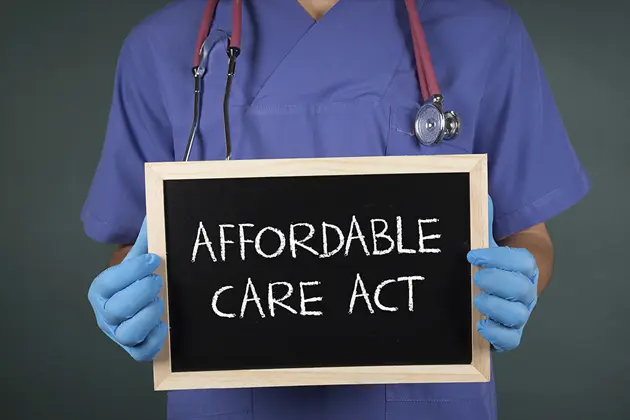A healthcare reform, the Affordable Care Act (ACA), is a step towards bringing health insurance reforms in the United States to make healthcare services more accessible to people across all social, cultural, and economic backgrounds. This particular healthcare legislation is focused on reforms concerning tax provisions. Let us see how this Affordable Care Act affects the lives of individuals in the States.
An Introduction to the Affordable Care Act, 2010
This comprehensive healthcare reform law, passed in 2010, addresses healthcare accessibility through insurance, preventive care, and healthcare costs. The Health Care and Education Reconciliation Act was amended on 30th March 2010. This reformative law doesn’t only affect individuals and families but also businesses, tax-exempted organizations, insurers, and government entities. Crucial changes concerning tax filing by individuals and families are encompassed by this law. Employers and organizations also savor the benefits of this comprehensive healthcare legislation.
ACA upholds three goals in its enforcement:
- Making the availability of affordable health insurance higher for more people.
- Expansion of Medicaid to give coverage to all adults with an income below 138% of the federal poverty level (FPL).
- Lowering the general health care costs by supporting innovative medical care delivery method designing.
This law is applicable to individuals and families having healthcare coverage and addresses employers’ requirements concerning employee health coverage. Let us now see in which three ways the Affordable Care Act affects individuals.
Three Ways the Affordable Care Act Affects Individuals
A historic step towards health equity in the United States, ACA has enhanced the health of all Americans in many ways. From women to older people, people with disabilities to the people of the LGBTQ community, this Act serves all. Here, we will identify three ways in which the Affordable Care Act affects individuals-
- Ensuring the Health of Women, Families, Older Adults, and Disabled
The law includes required plans covering preventive health services for around 58 million women, such as birth control, well-women visits, HIV screening, prenatal care, and more. Medicaid eligibility up to 138% of FPL for individuals and families and removal of categorical requirements for low-income people. Although only 38 states, along with Washington DC, have adopted Medicaid expansion under this law.
This reforming legislation has developed the Pregnancy Assistance Fund (PAF) for pregnant women and parenting women, families, and fathers to improve their health, education, economic, and social condition. MIECHV (HRSA) and Tribal MIECHV (ACF) recipients are provided with more than 7.1 million and 142,500 home visits. This law empowered community health centers by funding around $11 billion.
Great accessibility to healthcare for disabled people by eliminating discrimination from healthcare plans. One of the most significant contributions of this law is the establishment of the Center for Medicare & Medicaid Innovation to develop and examine new payment and service delivery models. $50 million is funded in the development of the Aging and Disability Resource Center (ADRC) Program in long-term care.
Aided 33 states with a grant to implement a “No Wrong Door System” collaboratively with the Centers for Medicare & Medicaid Services and ACL. Payment in conventional Medicare is reformed under this law through payment updates across healthcare service-providing hospitals and organizations. ACA created the Medicare Shared Savings Program to support more than 11 million Medicare beneficiaries.
- Patient Protection and Coverage
With an approach to bring dramatic reforms across the healthcare insurance sector, this law has extended Marketplace insurance to over 31 million people in early 2021. In the patient protection program, this regulatory law has safeguarded over 133 million people with cancer, asthma, diabetes, pregnancy, and other pre-existing conditions. ACA mandated the covering of 10 essential health benefits by insurers, including prescription drugs and mental health care.
It made vaccinations a mandatory part of routine health care visits, ensuring people’s accessibility to all recommended vaccinations. One of the crucial achievements of ACA is the foundation of the Federal Coordinated Health Care Office to serve dually enrolled people in Medicare and Medicaid. Under this program, dually eligible individuals are given complete access to quality and cost-effective care.
- Supporting Substance Use and Mental Health
In a holistic approach, ACA extended its reformations to support substance use and the mental health of individuals. With the Substance Abuse and Mental Health Services Administration Office of Behavioral Health Equity, this law has reduced disparities in substance use and mental disorders. Parity protections are extended to health insurance and health plans delivered through exchanges and coverage of substance use and mental disorder treatment services. This positively affected almost 30.4 million enrollees under the insurance plans and eliminated stigma in treating the vulnerable population.
The Health Home State Plan created by ACA offers comprehensive care coordination for individuals suffering from these types of chronic conditions. Funded the Garrett Lee Smith State and Tribal Program, Primary Behavioral Health Care Integration grant program, and GLS Campus Suicide Prevention programs with ample money. Through these programs, over 143,000 individuals have been trained in the domain of mental health care and over 30,000 people in suicide prevention. It has been promoting mental health through health awareness messages to 55 million people in the country.
Observing the three ways in which the Affordable Care Act affects individuals, its significance in the healthcare of the United States can be apprehended. This benchmarking law in the history of healthcare legislation in the United States has enabled millions of Americans with accessibility to healthcare with greater benefits. Promoting healthcare, this law has advanced the scenario of health equity in the country.










